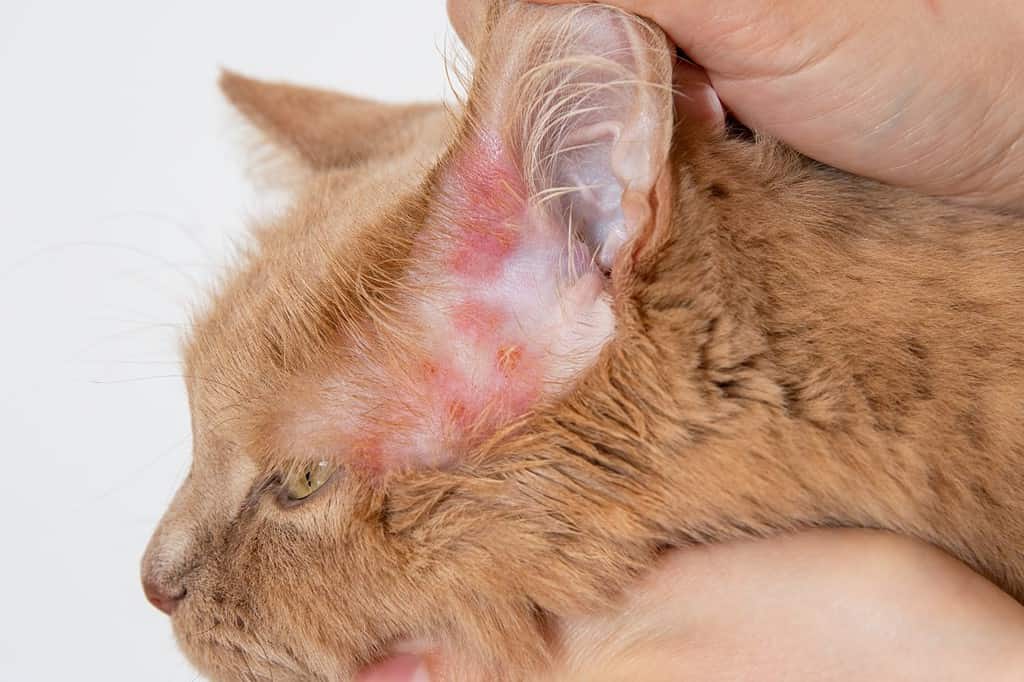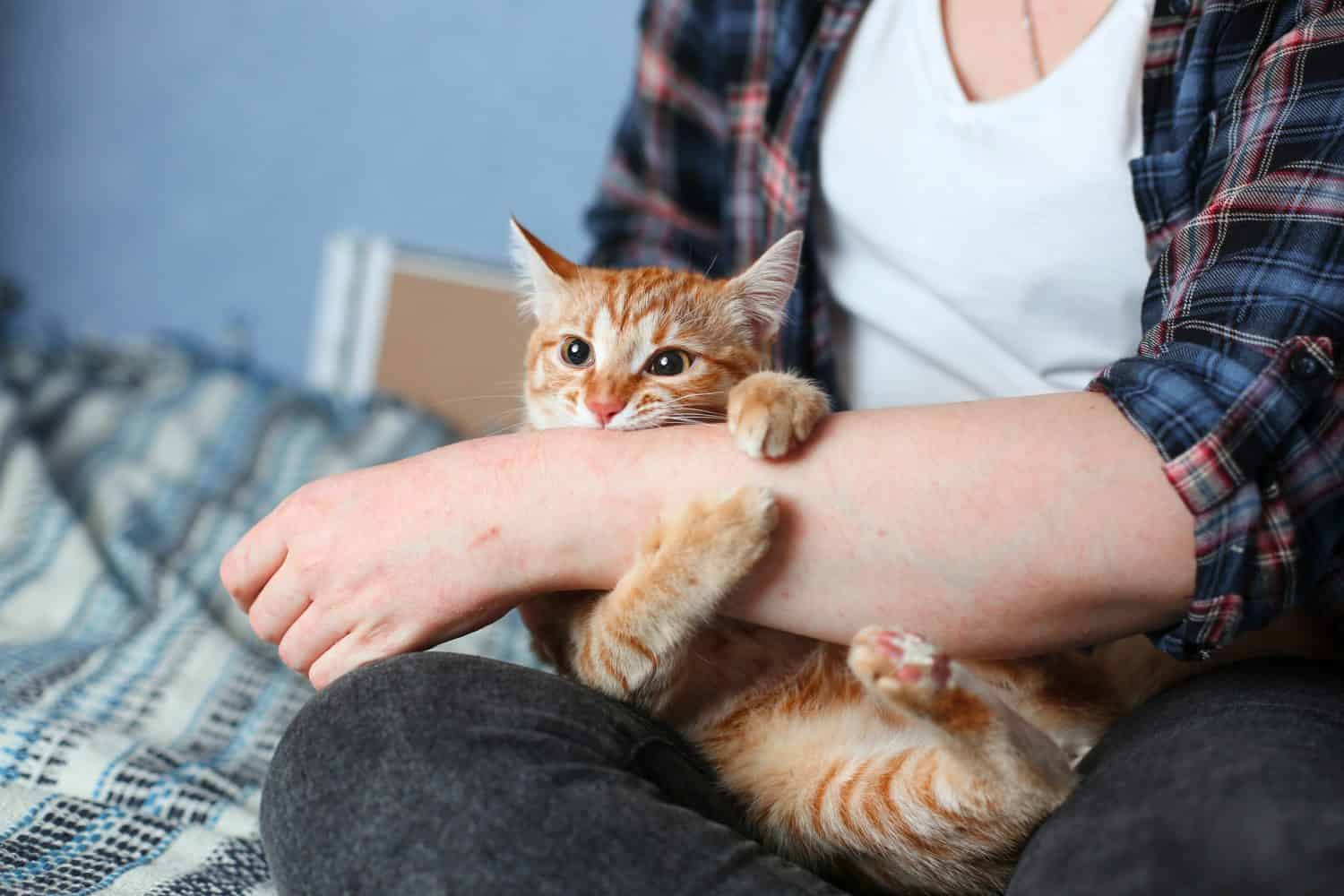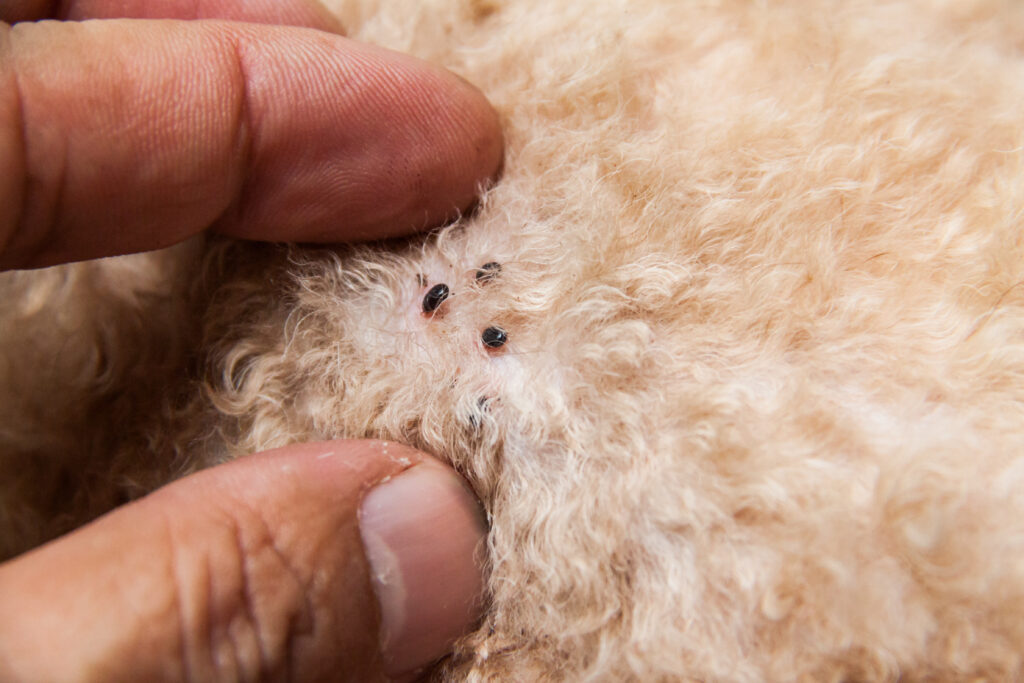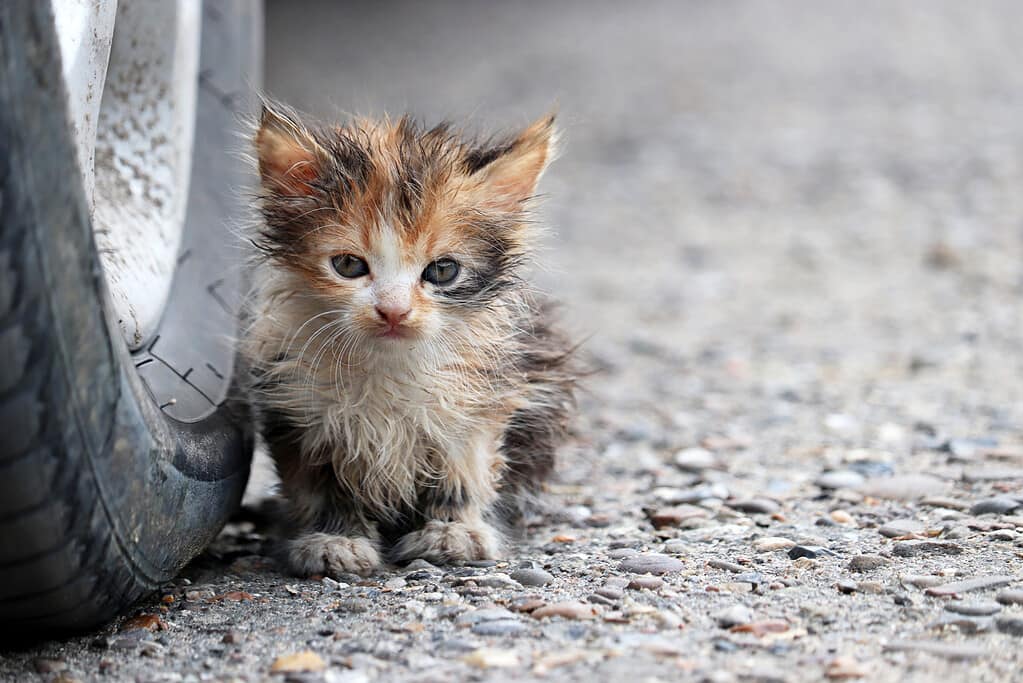It’s a common belief that pets are dirty. For dogs, that’s likely more true than you know. They walk around in the dirt and gross things on the ground, roll around in smelly objects and get as dirty as possible.
However, cats are quite the opposite. Even outside cats are rather clean animals, spending a lot of time cleaning themselves. Because of this, cats don’t need baths as often as other animals.
Bathing your cat can do more harm than good, in most circumstances. If you want to learn why it’s best to not bathe your cat, and the exceptions, continue reading below.
4 Reasons You Shouldn’t Bathe Your Cat
For the most part, it’s advised you don’t bathe your cat. It can cause harm, not only physically, but mentally for you and your cat.
1. They Groom Themselves

As a cat owner, you will realize your cat spends most of the day cleaning themselves like this.
©Cathy Withers-Clarke/Shutterstock.com
Cats spend around half of every day grooming themselves. Before they were domesticated, cats would groom themselves so much to mask their scent. This made it easier to sneak up on their prey, and you’ll see many big, wild cats practice similar behaviors.
Because they’re so attentive to their cleanliness, there’s no need to clean your cat yourself. Their barbed tongues get out most dirt and grime without a problem. If they have long fur and struggle a bit, you can help them out with regular brushing.
2. It Stresses Out Your Cat

Cats easily get stressed out when forced into water.
©Anna Krivitskaya/Shutterstock.com
Some cat breeds do fine with water, but many don’t like going near it except to drink. By forcing your cat into the water they’re afraid of, you can ruin the trust your cat has developed in you and cause emotional trauma.
3. Their Skin May Dry Out

Rashes are just as unpleasant for cats as they are for people.
©Yaya Photos/Shutterstock.com
Cats aren’t made to bathe regularly. If they take too many baths, they’re likely to develop dry skin, which can cause cracks, rashes, and itchiness.
Brushing is a much safer way to keep your cat clean. Instead of stripping out oils, brushing is the better option as it stimulates oil production and nourishes the fur and skin.
4. Bathing Your Cat Can Cause Unnecessary Injuries

Teeth and claws can be quite a problem during bath time.
©KAA-photo/Shutterstock.com
If your cat doesn’t want to take a bath, they aren’t going to sit and take it, usually. It’s more than likely they’ll fight and wiggle to get out of it. This can cause injuries to you and your cat.
With your pet struggling, they risk injuring themselves during an escape or a fall. They may break a bone, pull a muscle, or get their paw stuck in something.
As they’re flailing, your cat may also scratch at you to try and get you to let them go, or just in a moment of panic. It’s just as likely you’ll get bruised and scratched as your pet is to be injured, if not more so.
4 Exceptions
While it’s generally not a good idea to bathe your cat, there are exceptions to every rule.
1. Medical Conditions

Fleas are one of the reasons you would have to use medicated shampoo.
© ThamKC/Shutterstock.com
For the most part, your cat grooms itself and is usually fastidious in their grooming. There’s no need for people to bathe their cats most of the time.
However, one major exception is if there is a reason your cat is unable to groom themselves properly. Some more common conditions include obesity, old age, or arthritis.
Additionally, if your cat is suffering from fungal or bacterial infections, fleas, or bad allergies, then regular baths may be a solution. Your vet will often prescribe medicated shampoo to treat these problems, and in this case, a regular bath is required. Your vet will instruct you on how often your cat will need a bath with the medicated shampoo.
2. Unique Circumstances

Cats dirtier than normal may need a bath on occasion.
©Oleg Elkov/iStock via Getty Images
There are times when cats get into bad-smelling trash or make themselves exceptionally dirty, like skunks, trash, flour, and so on. In these situations, bathing your cat is probably not the worst idea.
3. Sphynx Cat

Sphynx cats need baths more regularly than other cats.
©sophiecat/Shutterstock.com
While most cat breeds take care of their own bathing problems, sphynx cats are an exception. To keep their skin healthy, sphinxes need regular baths.
This breed produces an excess amount of oil from their skin. Having regular baths protects from infections, removes some of the oil buildup, and gets rid of any debris accumulating on their skin.
Regular doesn’t mean all the time, though. Two to four times a month is usually plenty.
4. You Have Allergies

Allergies are no joke, and it’s important to do as much as you can to combat the dander causing the problem.
©Evgeniya Yantseva/Shutterstock.com
If you or someone in your household is allergic to cats, bathing can be a way to help manage the allergies. Allergies to cats are actually allergies to their dandruff and saliva, so bathing them regularly helps to cut back on allergens.
The photo featured at the top of this post is © JSep/Shutterstock.com
Thank you for reading! Have some feedback for us? Contact the AZ Animals editorial team.






